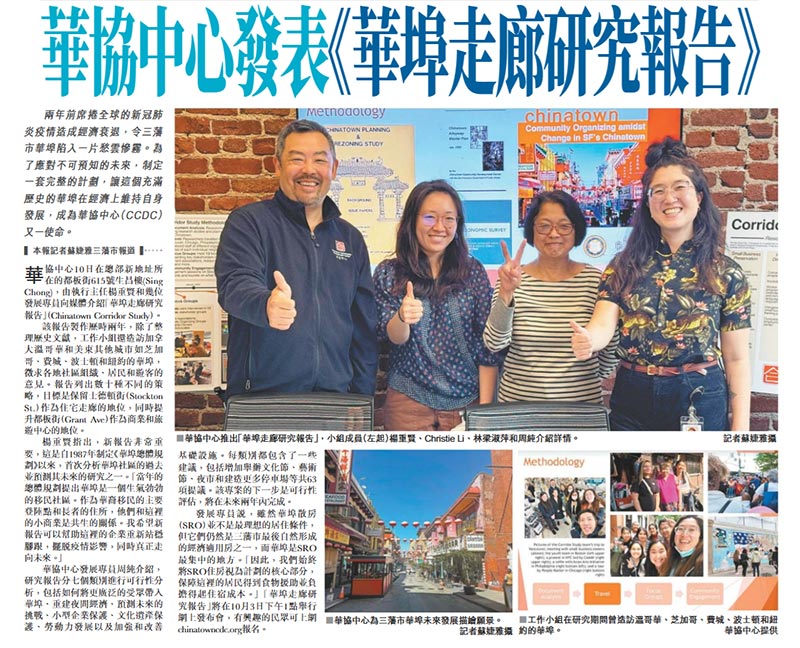The Chinatown Corridor Study report, published in Fall 2024, outlines economic development findings and recommendations for two vital commercial corridors in San Francisco (Stockton Street and Grant Avenue), underscoring how grassroots advocacy, preservation of the existing housing stock, and a resident-centered economy allow Chinatown to sustain itself as a home for low-income, monolingual residents. Another function of the Study is to identify proposals supporting the post-COVID-19 economic development of Chinatown in a manner that uplifts the residential and community-serving nature of Stockton Street while growing the innovative and external-facing appeal of Grant Avenue.
The Study is the outcome of a two-year-long process of document analysis, ethnographic case studies of five North American Chinatowns, focus group discussions, and localized community outreach.
Altogether, 60+ proposals were proposals derived from research processes and sorted under the three objectives of the 1987 San Francisco Chinatown Master Plan: Residential Village, Capital City, and Tourist Center. These proposals were further divided into seven sub-categories including small business preservation, workforce development, anticipating future challenges, cultural heritage preservation, strengthening and improving infrastructure, bringing broader audiences into Chinatown, and re-establishing a nighttime economy.
The next step of this project is a feasibility assessment and implementation evaluation slated to be completed from 2024 – 2026.
The Study is the outcome of a two-year-long process of document analysis, ethnographic case studies of five North American Chinatowns, focus group discussions, and localized community outreach.
Altogether, 60+ proposals were proposals derived from research processes and sorted under the three objectives of the 1987 San Francisco Chinatown Master Plan: Residential Village, Capital City, and Tourist Center. These proposals were further divided into seven sub-categories including small business preservation, workforce development, anticipating future challenges, cultural heritage preservation, strengthening and improving infrastructure, bringing broader audiences into Chinatown, and re-establishing a nighttime economy.
The next step of this project is a feasibility assessment and implementation evaluation slated to be completed from 2024 – 2026.
Thank You for Your Support!
Chevron
Philip Fung
Buck Gee
Philip Fung
Buck Gee
JPMorgan Chase
James Lau
National CAPACD
James Lau
National CAPACD
W.K. Kellogg Foundation Trustee Donor Advised Fund
Jirong and Amy Xiao
Jirong and Amy Xiao
Donor List as of May 30, 2025
Watch the Chinatown Corridor Study Webinar
Recent Conferences featuring the Chinatown Corridor Study
- Local Economies, Chinatown Roundtable presentation at Building CAPACD, the 2024 National Coalition for Asian Pacific American Community Development Convention in Chicago, IL.
-
2024 Asian Pacific Islander Americans in Historic Preservation (APIAHiP) National Forum. Presented at the Wing Luke Museum in Seattle, WA.


